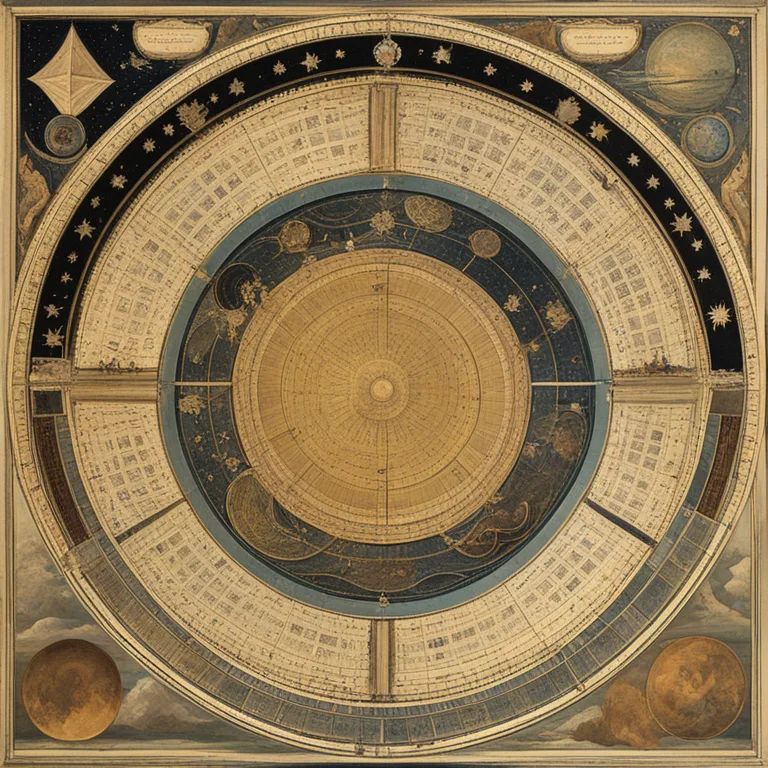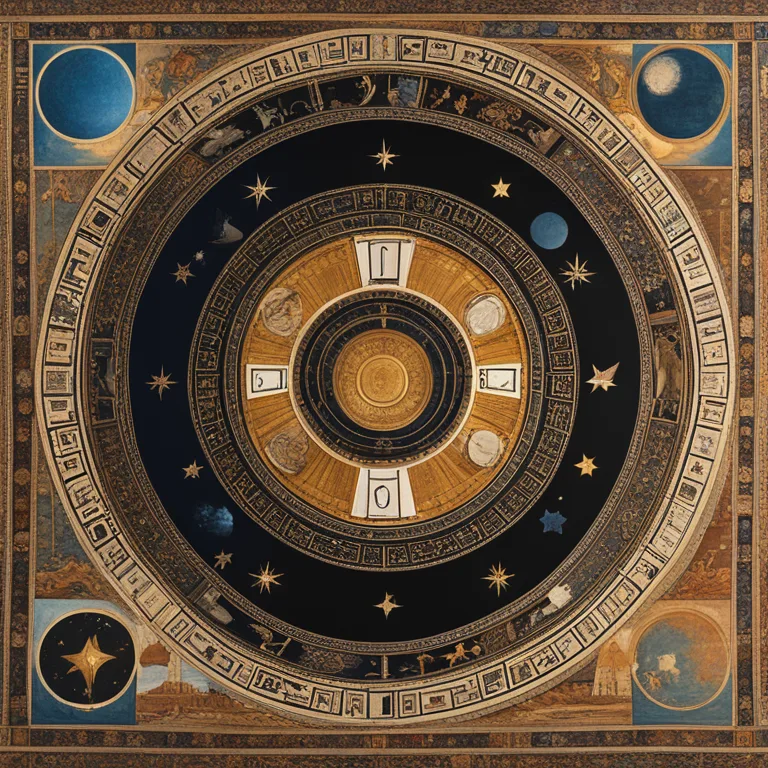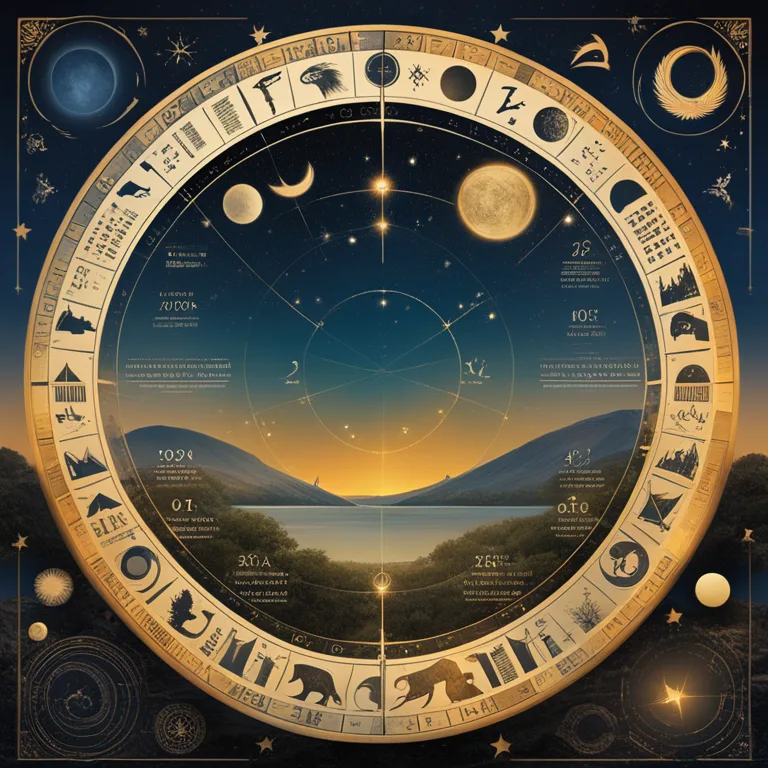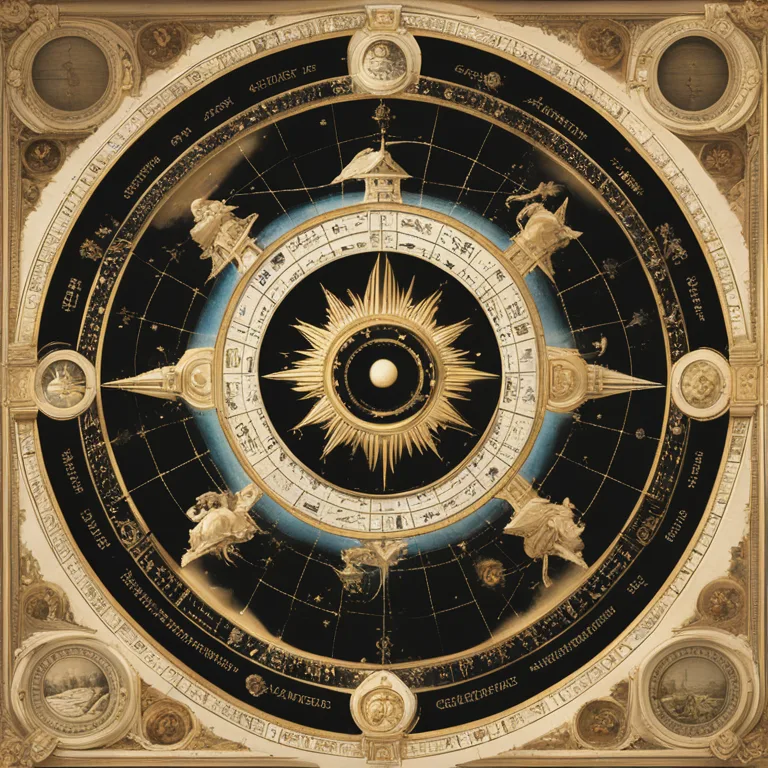
The Roots of Astrology: Tracing Its Linguistic Heritage
Delve into the linguistic history of astrology and uncover the ancient origins of this mystical practice's name and significance.
article by Priya Deshmukh
The Dawn of Astrology's Name
The word 'astrology' arrives from a tapestry of linguistic history, drawing threads from ancient Greek. The prefix 'astro-' originates from 'astron,' meaning 'star,' while '-logy' derives from 'logia,' denoting 'the study of.' Thus, at its core, astrology signifies 'the study of stars,' a name encapsulating humanity's endeavor to understand celestial influence on earthly life. Modern astrology retains this nomenclature, reflecting our continuous fascination with cosmic patterns and their purported insights into personality, destiny, and human affairs.

From Starry Skies to Scholarly Studies
Astrology's etymological roots mirror its historical journey from celestial observation to organized practice. Ancients gazed at the heavens, discerning patterns and ascribing meaning to the shifting constellations. Gradually, these celestial observations were codified into a systematic study, intertwining with mythology and philosophy. Over time, the term 'astrology' came to represent a bridge between the empirical skies and the mystical realm, where the planets' positions were believed to hold the key to decoding life's enigmas.

Astrology in the Age of Enlightenment
The Age of Enlightenment brought a linguistic shift, as astrology and astronomy began to diverge in definition. Astronomy, the scientific study of celestial bodies, distanced itself from the interpretative practice of astrology. Despite this detachment, the etymology of 'astrology' continued to influence the language of both disciplines. As we step into 2024, astrology remains a cultural mainstay, its nomenclature echoing through horoscopes and astrological forecasts that seek to provide guidance and reflection.

Celestial Lexicon and Modern Interpretations
The nomenclature of astrology extends beyond its own name. Terms like 'zodiac,' 'ecliptic,' and 'horoscope' carry storied pasts. 'Zodiac' comes from the Greek 'zodiakos,' meaning 'circle of animals,' a reference to the constellation patterns. The 'ecliptic’ is the path of the Sun’s apparent movement across the sky, shaped by ancient understanding of celestial mechanics. 'Horoscope,' originating from 'hora' (hour) and 'skopos' (observer), underscores the moment of birth as crucial to astrological analysis. As we create content for future forecasts, these etymological insights provide a rich tapestry for understanding and conveying astrological concepts.

2024 and Beyond: Astrological Resonance
With the coming of new years such as 2024, astrology enthusiasts continue to seek wisdom from the stars. The etymological heritage of astrology supports a language filled with intrigue and promise, offering a foundation upon which modern interpretations are laid. Whether through interpreting planetary alignments or examining the intricate dance of retrogrades, astrologers wield these ancient terms with an eye on the future, shaping horoscopes that resonate with contemporary seekers.
Published: 12/29/2023
Modified: 12/29/2023
More predictions
Come back here soon to learn more about yourself and your future


Unlocking The Impact of Astrological Transits
Gain insights into the dynamic realm of astrological transits and how they influence personal horoscopes and life events.


The Influence of Birth Date on Your Astrological Profile
Discover how your birth date shapes your astrological sign, personality traits, and cosmic destiny in the astrological realm.


The Astrological Almanac of Zodiac Signs
Delve into the cosmic influence of astrology and zodiac signs. Learn how celestial alignments guide personalities, futures, and relationships.